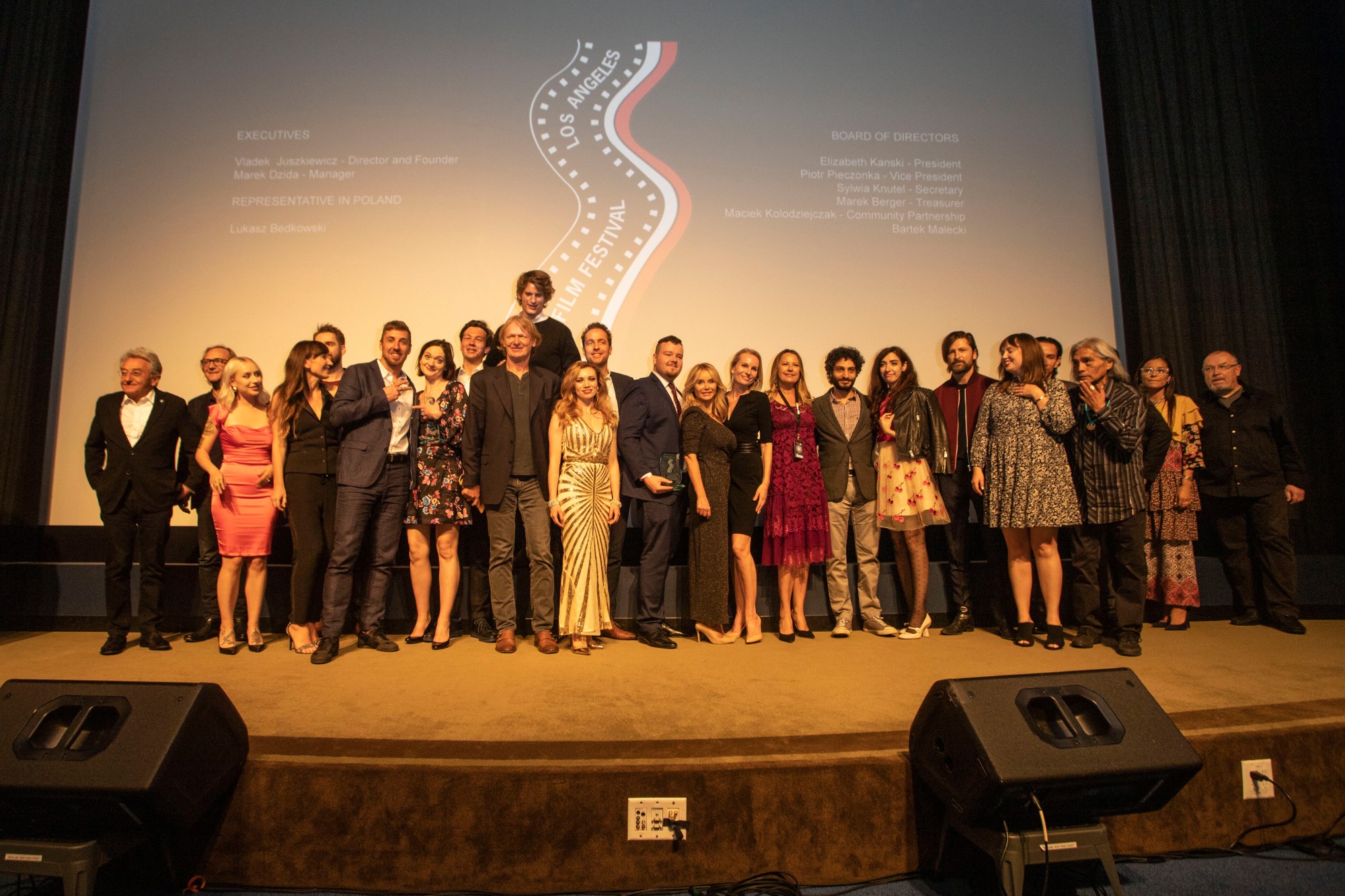
- Festivals
The Polish Film Festival in Los Angeles Reaches Maturity
On this year’s opening night, Vladek Juszkiewicz, founder and director of the Polish Film festival in Los Angeles, announced that this 20th year of service to the community and to this city will be his last. “Support the festival as much as you can”, he said as he stepped down from the podium. The audience reacted with surprise and sadness and stood to their feet in a show of appreciation for a man who has faithfully carried the spirit of Polish cinema for the last two decades. It felt as if a father was ushering his adolescent child into the world, now that it had reached maturity and could stand alone.
As the audience flowed in and out of the screening room at the Writers Guild Theater in Beverly Hills, watching the awards and chatting in the lobby over drinks and Polish delicacies, this small but lively festival that keeps the door open for Eastern European novelty, seemed ready to go on indefinitely. The week-long event (October 18-24) began in reverse order, with the awards ceremony first and a performance of the Polish and American anthems by the HB Barnum Life Choir. As odd as it seemed, the choral voices in the native language were successful in transporting us momentarily to another world, vaguely reminiscent of Pawel Pawlikowski’s Cold War.
The festival ranges from North Hollywood to Beverly Hills to Santa Monica with screenings of features, documentaries, and shorts at the Laemmle Theaters, as well as additional events in Hollywood, Long beach and Simi valley. This year’s program includes 20 new features from Poland and/or Polish filmmakers, some of whom represent their films in person. Following a strong cinematic tradition, the line-up reflects a tendency to draw parallels with past historical events surrounding the world wars. Such is Ether (2018) by Krysztof Zanussi, a story about a Russian doctor conducting cruel experiments on the eve of the first world war. Contemporary European concerns, such as corruption, lost identities, mental health, military violence, and strained interpersonal relationships also abound. 53 Wars (2018) examines the long-distance effects of war as they manifest in the life of the wife of a war correspondent; Back Home details the difficulties of a girl integrating back into her home town life after having been exploited as a prostitute; Playing Hard looks at the adventures of three women in the vices of alcoholism.
A film that stands out and combines both of the above tendencies is Werewolf (2019) by Adrian Panek. Tackling the horror genre as a metaphor that can be transferred to any time and place, Werewolf recounts the encounter of eight children who escape from a concentration camp with a pack of wolfhounds in an abandoned orphanage. The film won several awards in European festivals and is submitted for Golden Globe consideration.
A retrospective screening of Forbidden Songs, the first Polish film to be made after World War II in 1947 by Leonard Buczkowski, enriched the festival’s program with a story about Warsaw’s Nazi occupation told as a musical comedy. Corpus Christi, the Polish Oscar entry about a criminal-turned-priest, will be shown at the AFI Fest a few weeks after the Polish Film Festival in Los Angeles.
The festival offers two additional cultural experiences with free admission: Screenings of two experimental films and an exhibition of 22 movie posters designed by the most acclaimed Polish graphic designers, and a screening of the documentary The Divine Plan at the Ronald Reagan Presidential Library and Museum.

